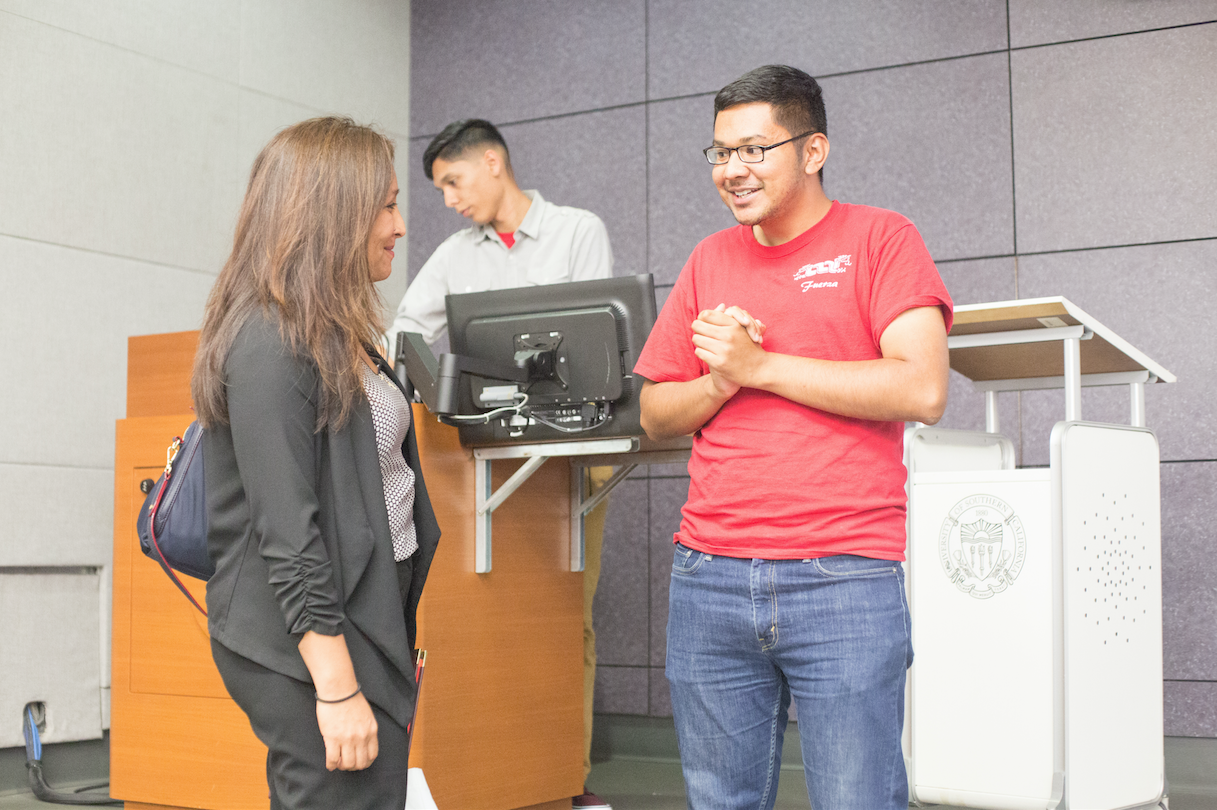Panel discusses future of DACA recipients
Undocumented students at USC and universities across the nation have expressed concerns since President Trump decided to end the Deferred Action for Childhood Arrivals program, an Obama-era policy that guaranteed temporary legal status to undocumented immigrants who arrived in the U.S. as children.
To address these issues, USC student group Hermanos Unidos hosted a DACA Summit on Thursday night, bringing together people of all backgrounds, ethnicities and sexualities to discuss the future of DACA recipients and the undocumented immigrant community.
The summit began with Susan Ramirez, a staff psychologist at the Engemann Student Health Center, who discussed mental health strategies for attendees to practice in the case of a deportation.
“[Students should consider,] ‘Who is an identified contact outside this country? How long do you wait when somebody doesn’t come home? When do you take action?’” Ramirez said. “Being able to conversate is essential in setting up a game plan.”
Ramirez also shared a quote from an undocumented immigrant named Jong-Min You, who was interviewed for an article published by the American Psychological Association.
“[Undocumented immigrants] live in this invisible prison, stuck behind these invisible bars,” You said in the article. “I can’t drive, vote, study abroad or get a great-paying job. You think about what your peers can do and you can’t, so you sit in your invisible prison and get depressed.”
Ramirez shared this quote to provide context for audience members about what it is like to be an undocumented student. This led the way to a discussion about coping mechanisms and recognizing how to deal with the “what if” moments undocumented students may face when thinking about the termination of DACA.
Because the greater Los Angeles area has a high population of DACA recipients, Hermanos Unidos members found it important for students to have a comprehensive understanding of the program and renewal process.
Christian Guzman, the leader of Hermanos Unidos, said he wanted to make sure students knew that USC provides resources for DACA recipients and undocumented students as a whole.
Jean Reisz, who works at the Gould Immigration Clinic, provided Summit attendees with further information on the DACA renewal process and the University’s resources for DACA recipients. While those who never registered for the program are unable to receive DACA benefits, Reisz is working to make sure all current DACA recipients who are eligible renew their status before the Oct. 5 deadline.
However, not all attendees were undocumented immigrants. Rosa Escobar, a graduate student at the Suzanne Dworak-Peck School of Social Work, came in support of her many coworkers who are DACA recipients.
“This is a major thing, and lots of people are going through such a tragedy,” Escobar said. “Lots are students just trying to get an education, and not knowing what’s going to happen to them is scary, especially knowing that all their hard work might go to waste.”
Escobar hopes that the University will continue defending DACA and keeping DACA recipients safe from deportation.


We definitely need to keep the discussion going.